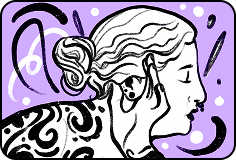Simulation of reality: evidence and refutations
“Everything that has a beginning has an end,” said Buddha, Aristarchus of Samos, and Pythia in The Matrix. Meaninglessness has no beginning and no end. Meaninglessness has always surrounded us. We were born and we live in conditions of meaninglessness, therefore we cannot imagine life without it, therefore we do not know what meaning is, and even with the glimpse of it, we continue to live in conditions of meaninglessness, without noticing it. Thus, meaninglessness is a kind of never-ending circle, from which it is impossible to escape. ”
Albert Tartar. Existentialism for little ones
Everyone who has ever played computer games has thought: “How stupid these NPCs are, they always do the same thing.” But not everyone who thought about it came up with the question: aren’t we the same? Look at yourself, try to recall what you did last week. How often do you follow the same routes? How often do you repeat your actions?
The reality is that 70% of our lifetime is filled with performing routine tasks and, in order to somehow diversify our everyday life, we turn to hobbies and entertainment. But these are just attempts to break free from the endless cycle of repetition.
So, is it worth asking the question — maybe we are NPCs, too, programmed to perform certain actions? Perhaps we are not the main characters in this world, but only the ones who play roles designed by someone upfront? What if our reality is just a code?
We all live in the matrix
The first full-fledged computer game appeared only in 1958, when the American physicist William Higinbotham created Tennis for Two. For some decades, technology has gone from simple sticks and dots to photorealistic graphics and expanded sensorial experience with the help of powerful computer hardware which is literally breathtaking. Games are no longer meant only for entertainment, they have become part of reality, turned into new worlds where reality and simulation merge.
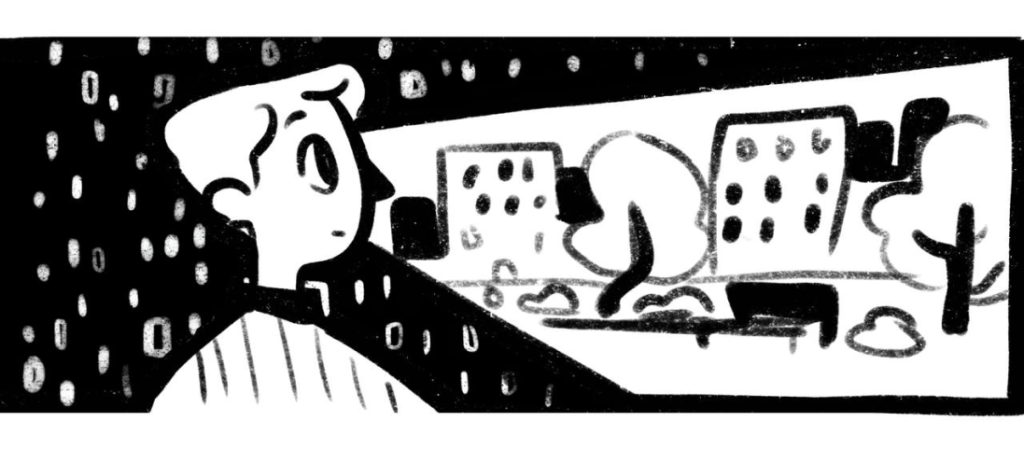
After such realistic games, you involuntarily begin to wonder whether we are living in a computer simulation? In the open window of your apartment, you can see that everything seems to be the same as always, nothing has changed. It seems to be a reality, but doubts remain.
And what if the whole world is “loaded” only when you are nearby? What’s going on around a corner you haven’t been to yet? Maybe the world doesn’t exist at all until you appear there? As in video games, the character sees only the area in a radius around him, and only as he moves, the world begins to be generated. He steps forward and voilà, there is a new piece of reality in front of him.
If we have already learned how to create such realistic computer games, then what prevents us from assuming that we live in a simulation created by a more advanced civilisation? Perhaps we can already create games with full immersion, where reality and virtuality become identical to each other. Perhaps in the future, characters with artificial intelligence will gain consciousness and will become a permanent part of our lives. In that case, the question of “what is real and what is artificial” will acquire a new meaning.
Maybe multiverses are simulations inside simulations, as in an endless chain of nested worlds, each of which lives according to its own laws, but in fact it is a part of something bigger. Such a hypothesis even has its own name “matryoshka principle”.
Many influential people, including ancient philosophers and modern scientists, argued in favour of the simulation hypothesis. René Descartes in his philosophical works questioned the reality of our world, and Nick Bostrom proposed one of the most famous versions of this hypothesis. Even people as Elon Musk and Neil DeGrasse Tyson support the possibility that everything around is a complex program created by more developed creatures.
And what about the familiar phenomenon of déjà vu? Doesn’t it say that all life scenarios have already been written by someone? Where do memories or even specific words come from if everything that happens to us on our planet happens to us for the first time? Or is it a level of a game that you play again?
Scientists still cannot give an exact answer to the nature of this phenomenon. Some researchers believe that déjà vu is a memory error, when the brain “records” the current moment twice, creating an illusion that the event is repeated. Other scientists think our brains predict our future to warn us about undesired events.
But there are also those who believe that déjà vu is a failure in reality itself. Perhaps we are living in a simulation, and at one moment something goes wrong. The feeling of repetition arises because the system “restarts” this moment like a level in a game. Or are we really experiencing the same events again, stuck in a loop and replaying our lives?
If we imagine that our reality is still a simulation, then such oddities as the “Mandela Effect” can be proof that the system is not perfect. The Mandela Effect is a phenomenon in which a large group of people equally remember an event that did not actually happen. The name comes from the fact that many people firmly believed that Nelson Mandela died in prison in 1980, when in fact he died in 2013. Perhaps the changes in the simulation affect only a part of the “players”, leaving them with memories of the past, which was before the “restart”. Proponents of the simulation hypothesis consider the Mandela Effect phenomenon to be one of the examples of how simulation “corrects” reality errors or rewrites history.
“Luke, I’m your father” is a phrase from the Star Wars movie that many people remember like this. However, Darth Vader tells his son Luke, “No, I am your father.” This common misremembering has become one of the most famous examples of the Mandela phenomenon and there are many similar examples.
To some philosophers it seems suspicious that life has no visible global purpose. This also raises the question of whether we are living in a simulation. In the simulation, as in the game, goals can be set artificially or they can be completely absent for “non-player characters”. Perhaps this is why we often encounter the feeling that the events of our lives are repeating themselves, as if someone were controlling us from behind the scenes, as in the popular The Sims simulator.
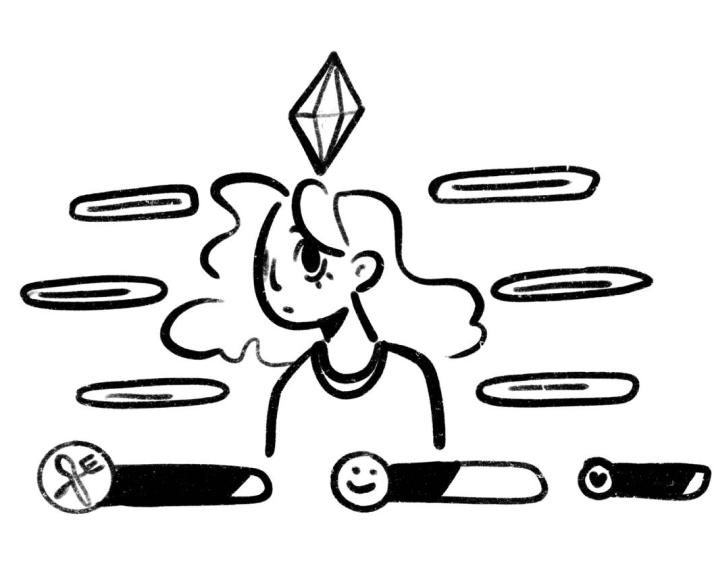
The Sims game created a lot of interesting theories, one of which became especially popular on international forums. The theory is associated with the strange feeling when a strong intention to do something is completely erased from memory. A minute ago, I remembered it and then suddenly I forgot everything. This raises a dangerous guess in many people’s minds — what if we, as characters in the simulation, just “reboot”? Or, perhaps, the program simply “did not have time to load” the necessary information? This leads to the fact that we momentarily lose awareness of actions like the characters in the game.
Some proponents of the simulation theory even gave a name to this effect as “The Doorway Effect”. They also draw analogies with The Sims game: when you set a task for your character, for example, to go open a safe, or to call someone, then at the same time you set another task, then another one, the character begins to hesitate and can easily forget what they had to do.
Other scientists have put forward the theory that reality does not exist, everything on the planet is subject to a single code. This conclusion was made by physicists based on the fact that information does not disappear, even when the object is swallowed by a black hole, this contradicts everything we know about reality. Why would we not assume that the information is retained because it is a part of the code? The code that governs the Universe, like a system does in a complex simulation. Leonard Susskind and other physicists wonder if there is something beyond the event horizon, such as the mysterious structure of the Universe that governs all reality. Physicists as no one else do know that black hole swallowing is not the end, it is the beginning. The beginning of understanding that our world is a simulation, and black holes are portals where reality is “rewritten”.
However, there are questions to such a brilliant theory. For example, if we assume for a minute that we live in a simulation, why does the system allow us to think that someone or something can control us? If the program is programmed to hide the truth from us, wouldn’t it be more logical to forbid us from thinking such thoughts? Why does the simulation give us the opportunity to reflect on our nature, question reality and discuss hypotheses that can destroy the illusion?
Maybe those who run the whole simulation are confident that we will never find the answer. Or they are just observing us, like real scientists do when studying the behaviour of objects in their experiment. Maybe our desire to understand how the world works is a part of a program created so that we are constantly looking for answers, but we can never go beyond it. Just recall the experiment of Thomas Jung with the “naughty” particles, which have their own laws. But not only physicists support the theory of code in the hands of the Universe.
Even philosophers spoke about this a few centuries ago: “We are the dreams of God.” This popular expression is often used in philosophical and religious reflections on the nature of reality and being. In the context of the simulation hypothesis, it can be interpreted as a metaphor for the idea that our reality is something created or projected by a higher mind or entity. If our reality is a simulation, then we essentially exist in the consciousness or dream of a supreme being, whether it be God, the Creator, or a programmer.
Matrix does not exist
And what if the idea of simulation is another “heresy” of our time? Is it worth attaching importance to such thoughts if there is no direct evidence? Despite all the popularity of hypotheses that speak in favour of a simulation, all the theories that explain its existence still remain theories. There is no scientific evidence that could conclusively confirm that we live in the matrix of a dexterous God. These are all just arguments and philosophical questions, devoid of specific facts.
In addition, if this hypothesis about the presence of a simulation is true, the question arises about its moral aspects. What kind of civilization would need to create such a complex, suffering world full of wars, hunger and inequality? If the world is a simulation, why did its creators bring so much imperfection and injustice into it? Who are these programmers who allowed so much pain? Finally, why create a world in which people suffer if it could be made harmonious and just?
The stability and predictability of the laws of nature remain important arguments against the simulation hypothesis. Throughout history, physical laws such as gravity and thermodynamics have operated consistently and predictably. If our world were really a simulation, it would be fair to expect crashes, annoying bugs, or errors in the system. However, by observing how physical laws work consistently and predictably, we can conclude that our reality functions as a real system, not as a fault-prone program. But how desirable it is sometimes to assume that the speed of light is just a limit on the speed of reading a hard disk, on which each of us occupies our own pixels.
In addition, most scientists argue that the fundamental laws of physics, including the law of conservation of energy, remain universal and unchanged. If our reality was a simulation, then breaking these very laws would be an obvious sign of a code failure. However, no such observations were recorded. This indicates that the reality we perceive is based on the strict laws of classical physics, making the simulation hypothesis less likely.
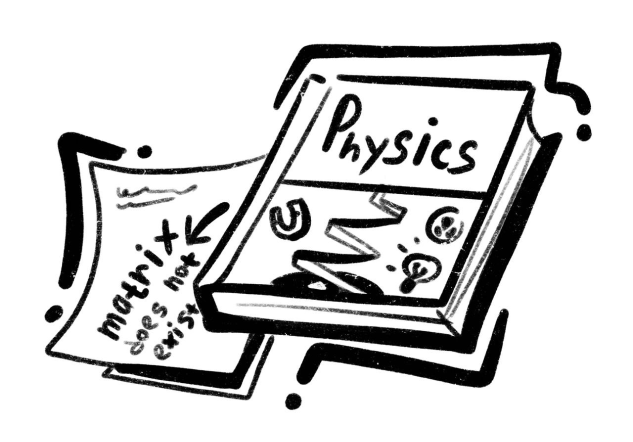
But the classical basic theory was also disproved by the physicist James Gates when he discovered something eerie about the equations that govern the Universe. In his research, Gates discovered a strange thing: quarks, the elementary particles that make up the matter, obey rules that resemble computer correction codes. That is, the rules to which elementary particles obey resemble the very code that helps to detect and correct errors that occur during data transmission. Corrective code, similar to what is used in computer systems to eliminate errors. But how is this possible at all?
James Gates says, “Where do they come from in the quark equations or supersymmetry from my research? This led me to the realization that I can no longer say that people who support the theory of simulation are crazy.
Why does reality need to “correct mistakes”?
Or does it exist after all?
And here we are facing another assumption based on the fact that some laws of physics can be expressed using mathematical formulas that accurately describe the behaviour of the Universe. This leads scientists to the idea that reality can be a program based on mathematical algorithms. Scientists such as NASA’s Richard Terrill suggest that the Universe could be digital at its core. Mathematical predictability may indicate that reality is computable like a simulation.
But if the Universe is indeed “coded,” then who is the author of this code?
Hold on for a second..
Is it really true that people who see something unusual are observing a code in the matrix or failures at that moment?
If we draw analogies with the world of computer games, where there are always trolls that interfere with other players, maybe in real life there are also trolls? Random, disruptive people who block the road, talk loudly, or violate public order. Is it possible that their actions are just a part of the code of a huge simulation that teaches us patience?
And what about cats? Why do they run, and then suddenly stop and look in one particular direction? Maybe cats see something we can’t, like system glitches or even ghosts. Cats seem to feel something unusual, and it makes us wonder.
Even if scientists provide us with evidence that our world is a simple simulation, what will it change? Will it make life easier? You can find a lot of arguments for and against this hypothesis, but it is better to live for the moment and enjoy… whether it is someone’s creative scenarios, or the result of our own decisions.
Although, we are all created in the “image and likeness”. Now it is us who create games in our own image, like The Sims, where we are capable of building characters in our image and likeness. But what if there’s more to it?
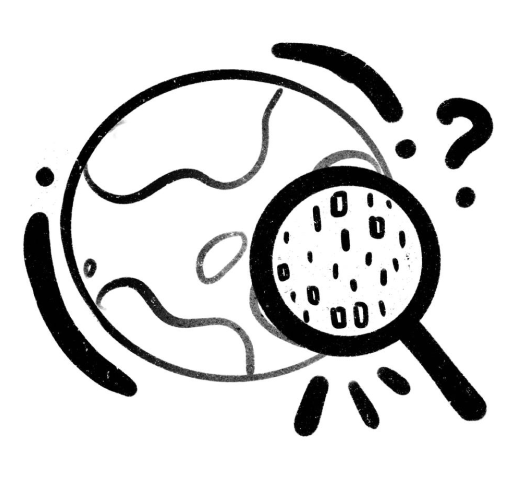
Dark matter whispers secrets only geniuses can hear.
Thank you!




